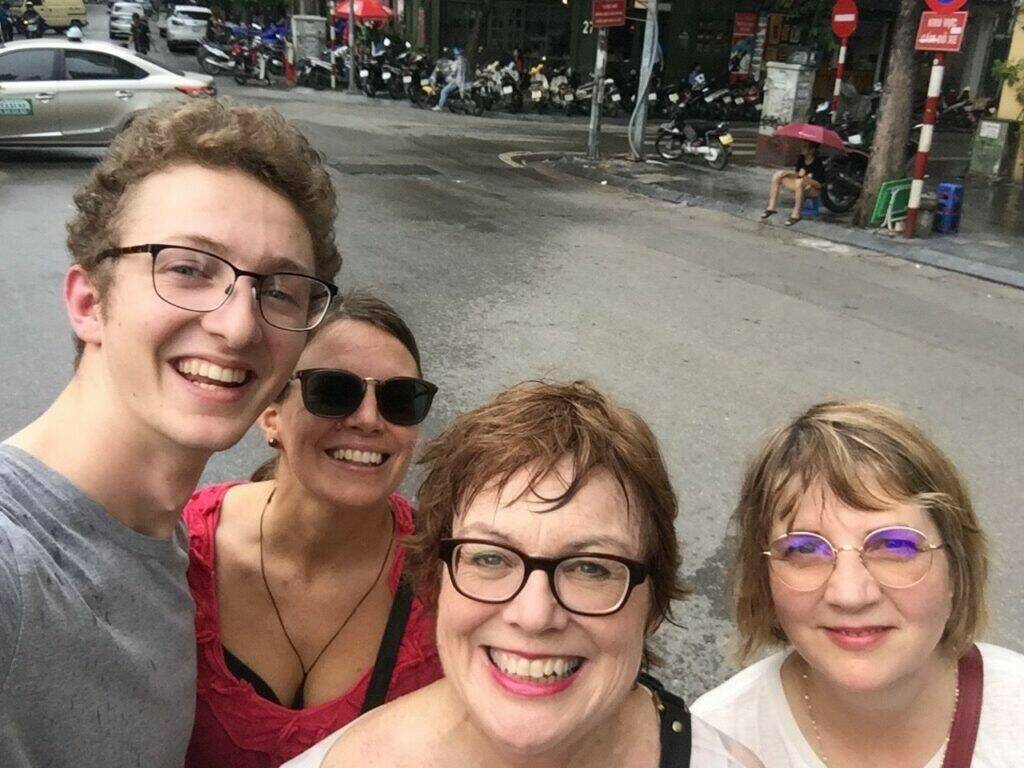Global conversations in Hanoi
UNESCO Aotearoa Youth Leader Pete McKenzie was part of a delegation that attended the 2019 UNESCO Forum on Education for Sustainable Development and Global Citizenship in Hanoi at the beginning of July. The trip was made possible through assistance from the National Commission. Pete shares his experience.
Pete reflects
After a few days rubbing shoulders with some of the world’s foremost education experts at UNESCO’s biannual forum on sustainable development and global citizenship (hosted this year in Hanoi, the chaotic capital of Vietnam), it was with surprise that I realised that the most impactful conversations of the past few days hadn’t been at the conference at all.
Instead they had taken place while jet-lagged at Changi International Airport in Singapore, perched on tiny plastic chairs on a street corner in the middle of the city, sitting in a grubby cafe which boasted of having hosted President Obama years before, and countless other spots visited during the trip: all the places where the New Zealand delegation had spent time mulling over politics, policy and educational development.
It is perhaps slightly parochial to be focused on conversations with fellow New Zealanders while attending a conference whose attendees are drawn from every continent. It is nevertheless justified when your delegation consists of the acclaimed political scientist Bronwyn Hayward, the insightful philosopher and teacher Libby Giles, and the academic globe-trotter Maria Perreau. Our conversations, ranging from the efficacy of climate emergency declarations to the pedagogical importance of providing a grounding in philosophy for high school students, continually pushed me to consider major issues from a new perspective.
Of course that is what UNESCO is all about: building surprising and durable human connections to help people see things in a new light, develop new expertise and use that to help construct a more peaceful and tolerant community back at home. I am extraordinarily grateful to the New Zealand National Commission for UNESCO for providing the space for such connections to develop.
That being said, the conference itself was remarkable as well. Attended by luminaries from the Brookings Institute and hardscrabble teachers from Western Africa, high-flying bureaucrats from European ministries and deeply thoughtful politicians like the Bhutanese Minister for Education; it was full of remarkable contrasts. In between conversations with these truly global citizens, we were plunged into panel events and workshops on issues ranging from educational institutions’ role in promoting mindfulness to how best to teach the value-set of global citizenship. It was a firehose of information which could be found nowhere else.
In between the relentless schedule of conference activities, we were also able to squeeze in some time to visit educational landmarks in Hanoi: most crucially, the Temple of Literature, an 11th century temple which hosted the Imperial Academy – a school for the elite of Vietnamese society, whose graduates could occasionally rise to the level of gods after their death. It was a keen reminder of the flaws in our own educational system (notably, its bias towards the privileged), some of its strengths (the transformational power of a good education), and the importance of improving it with reference to other cultural and pedagogical examples.
Eventually our delegation broke apart. Bronwyn had to fly on to attend the latest Intergovernmental Panel on Climate Change conference in Nepal; Maria, Libby and I had to fly home. But despite the fleetingness of those four days in Hanoi, the conversations and connections I made will stay with me. I am deeply grateful to the National Commission for making that possible.

